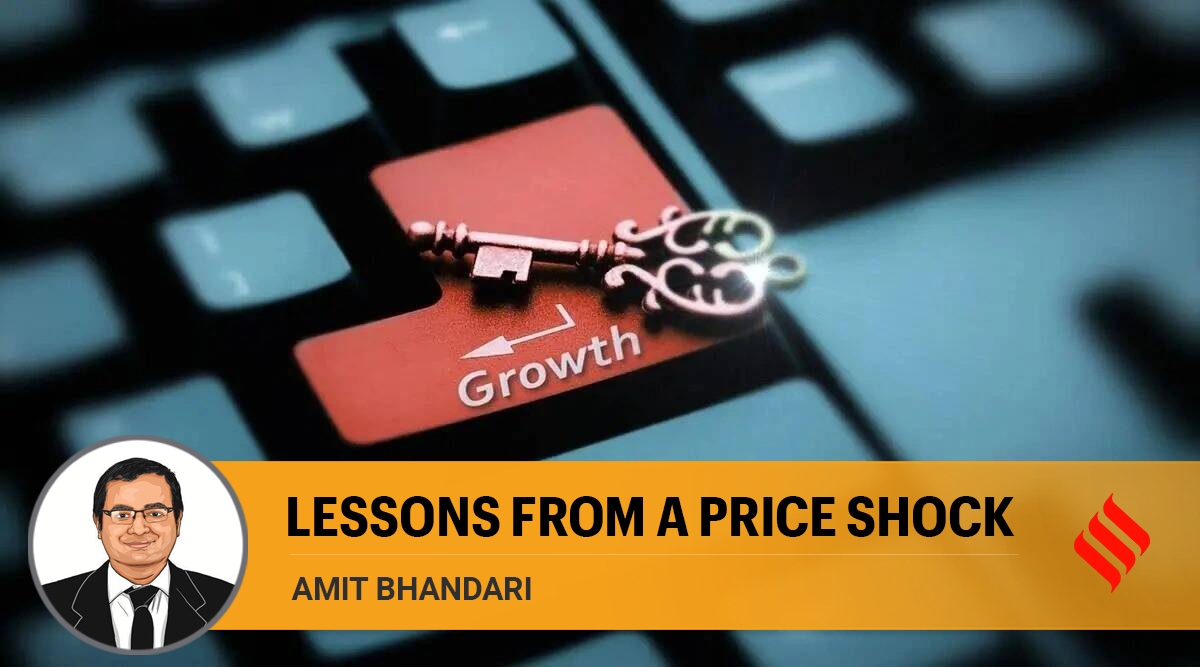 Amit Bhandari writes: In India, the price shock for commodities across the board, could derail the economy as it recovers from the effects of Covid-19. (Representational)
Amit Bhandari writes: In India, the price shock for commodities across the board, could derail the economy as it recovers from the effects of Covid-19. (Representational)The Russia-Ukraine conflict, now more than three months old, will cause major, long-term shifts in the global energy and commodity trade. Western sanctions on Russia and efforts of European nations to diversify their energy supplies are already causing market distortions and high prices. Those, in turn, have begun to trigger inflation and widespread financial distress. In India, the price shock for commodities across the board, could derail the economy as it recovers from the effects of Covid-19.
The conflict has already had a worldwide economic impact. Crude oil prices are at their highest level since 2014; the price of LNG is at its highest ever, fertiliser and food are up and markets for several other commodities such as nickel have been disrupted. Expensive commodities are already causing distress in India’s neighbourhood, for example, in Sri Lanka and Pakistan. In Sri Lanka’s case, economic turmoil due to high inflation, shortages of basic necessities and a default on foreign debt, has caused a political crisis as well.
The warning signs were visible long before the conflict in Ukraine began. Insufficient investment in oil and gas production in preceding years resulted in high prices, and shortages were being felt. A number of European investors, such as Norway’s sovereign wealth fund, announced they would no longer invest in traditional fuels — oil, gas, coal. With investors keeping away, the conflict in Ukraine precipitated the inevitable.
Even without the conflict, another factor could have triggered the price shock. Natural gas is used as a feedstock for fertiliser. An energy shock is then inevitably followed by a food price shock.
Best of Express Premium
What does the future hold? How bad the situation can become depends on multiple factors — the duration of the Ukraine conflict, the terms on which it is settled, if it is, and the response of the US and its allies, especially on the sanctions.
While these outcomes cannot be predicted, some trends are evident. First, irrespective of how the conflict pans out, the European Union’s ties with Russia will continue to be strained. In the immediate term, the EU is trying to source its raw materials — most critically oil and natural gas, but also fertiliser, agricultural goods and metals — from non-Russian sources. This will cause distortions and price spikes for those commodities in the global market, as can already be seen in the natural gas market, up 300 per cent in the last year.
Second, sanctions on Russia are unlikely to achieve the desired political outcome. The US and its allies are quick to impose sanctions — and these are rarely withdrawn, if ever. Iran has been under US sanctions since 1979, and the same with Venezuela for over a decade. In both cases, sanctions have failed to achieve the desired political outcome — a change in regime or its behaviour. As Russia is much better placed than either of those two countries to weather sanctions, the restrictions are likely to remain for a long while.
Third, the high price of energy and the resulting inflation shows why much of the emerging world is unwilling and unable to align with the West on the current sanctions. Russia is 11 per cent of the global landmass and among the world’s top five producers and exporters of oil, gas, fertiliser and other critical commodities like nickel. It is too big to be replaced as a supplier. Attempts to buy from other countries will only distort markets further. In emerging economies, it can fan public anger and political unrest, as was seen in Tunisia and other Arab countries from 2010 on.
Larger emerging economies such as China, India and Brazil will disregard sanctions on their key economic interests, particularly food, fertilisers and energy. Specifically for India, its dependence on these essentials is unlikely to reduce meaningfully over the next 15-20 years. In the immediate future, the country should collaborate with other similar economies to ensure that Russia doesn’t get locked out of global commodity markets. For the long term, it must work on insulating its supply chains from global political crises.
(Bhandari is Senior Fellow for Energy, Investment and Connectivity, Gateway House. He has also authored India and the Changing Geopolitics of Oil)
- The Indian Express website has been rated GREEN for its credibility and trustworthiness by Newsguard, a global service that rates news sources for their journalistic standards.

